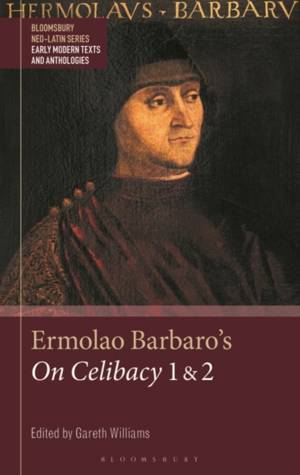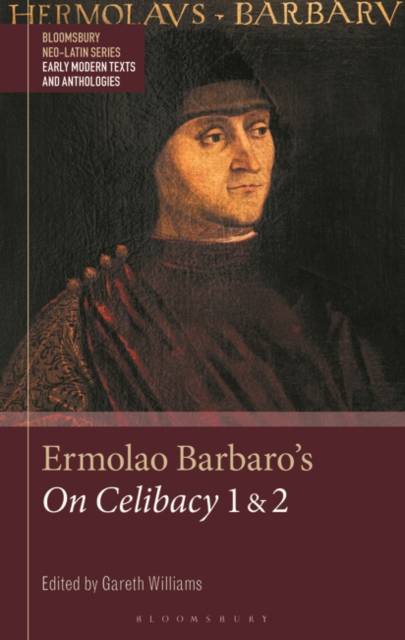
- Afhalen na 1 uur in een winkel met voorraad
- Gratis thuislevering in België vanaf € 30
- Ruim aanbod met 7 miljoen producten
- Afhalen na 1 uur in een winkel met voorraad
- Gratis thuislevering in België vanaf € 30
- Ruim aanbod met 7 miljoen producten
Zoeken
Ermolao Barbaro's on Celibacy 1 and 2
€ 125,95
+ 251 punten
Omschrijving
This volume offers the first annotated English translation of the first two books of On Celibacy (1473) by the eminent Venetian humanist Ermolao Barbaro (1454-93); Books 3 and 4 of On Celibacy are presented, along with Barbaro's On the Duty of the Ambassador, in the companion piece to this first volume. Setting out the historical context that crucially conditions Barbaro's advocacy of the celibate life in Books 1 and 2, the introduction examines how On Celibacy seeks to justify a contemplative existence that rejects the career path expected of a figure of Barbaro's standing within the Venetian patrician class.
Beyond setting out the essential facts of Ermolao Barbaro's life-story, Gareth Williams discusses how On Celibacy is set in counterpoise to the treatise On Marriage (1415) that was composed by Ermolao's eminent grandfather, Francesco Barbaro. If the latter's treatise was vitally concerned with the institution of marriage as a key factor in the safeguarding of family succession and the stability of patriciate participation in government at Venice, On Celibacy presents an alternative ideal whereby the celibate can proudly renounce civic life in the name of self-discovery and the pursuit of wisdom, his abilities simply unsuited to the rigors of civic life. On Celibacy is thus implicated in a much wider 15th-century debate about the claims of the contemplative as opposed to the active life - a debate that extends all the way back to Graeco-Roman antiquity.Specificaties
Betrokkenen
- Uitgeverij:
Inhoud
- Aantal bladzijden:
- 216
- Taal:
- Engels
- Reeks:
Eigenschappen
- Productcode (EAN):
- 9781350149434
- Verschijningsdatum:
- 05/10/2023
- Uitvoering:
- Hardcover
- Formaat:
- Genaaid
- Afmetingen:
- 140 mm x 216 mm
- Gewicht:
- 390 g

Alleen bij Standaard Boekhandel
+ 251 punten op je klantenkaart van Standaard Boekhandel
Beoordelingen
We publiceren alleen reviews die voldoen aan de voorwaarden voor reviews. Bekijk onze voorwaarden voor reviews.






